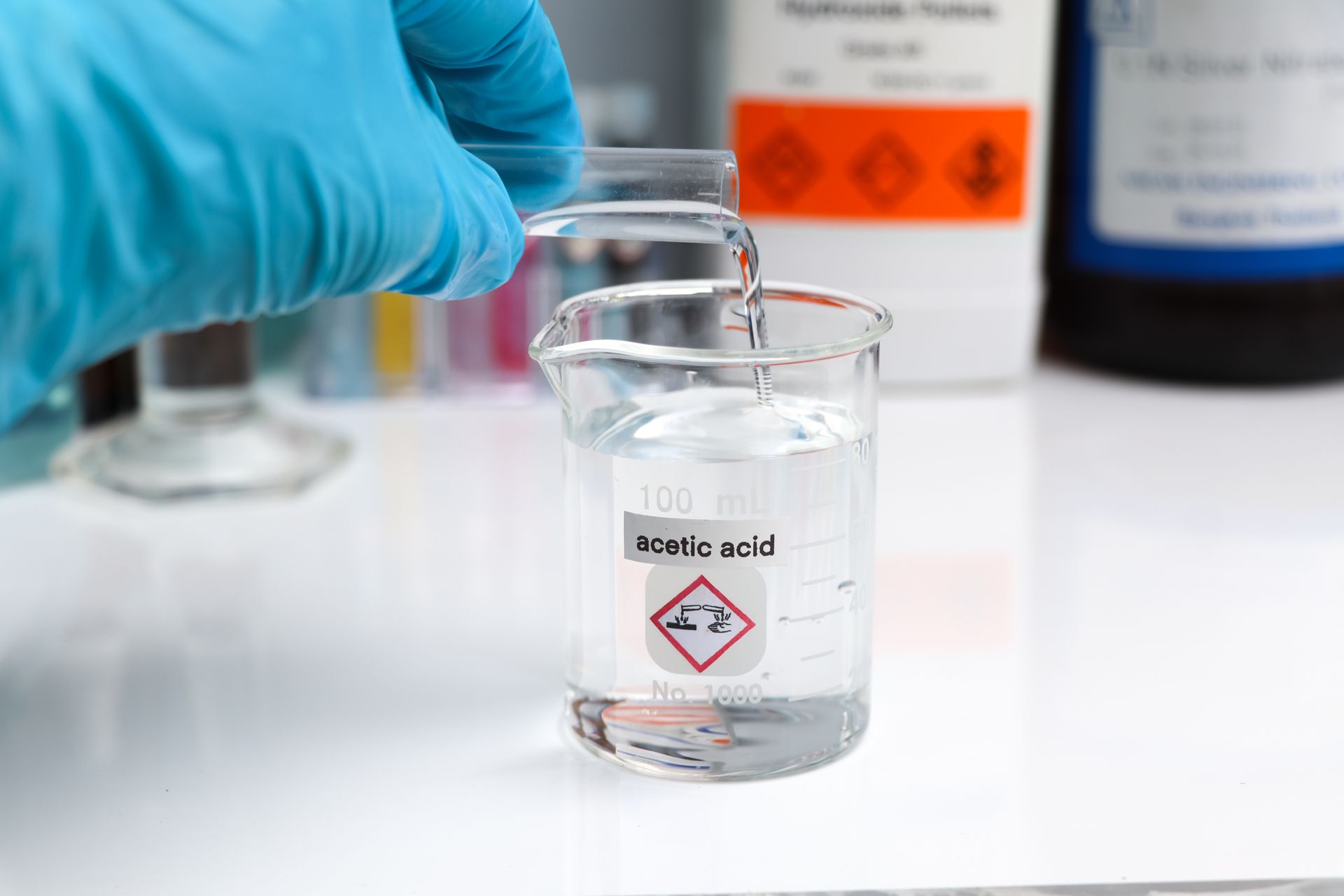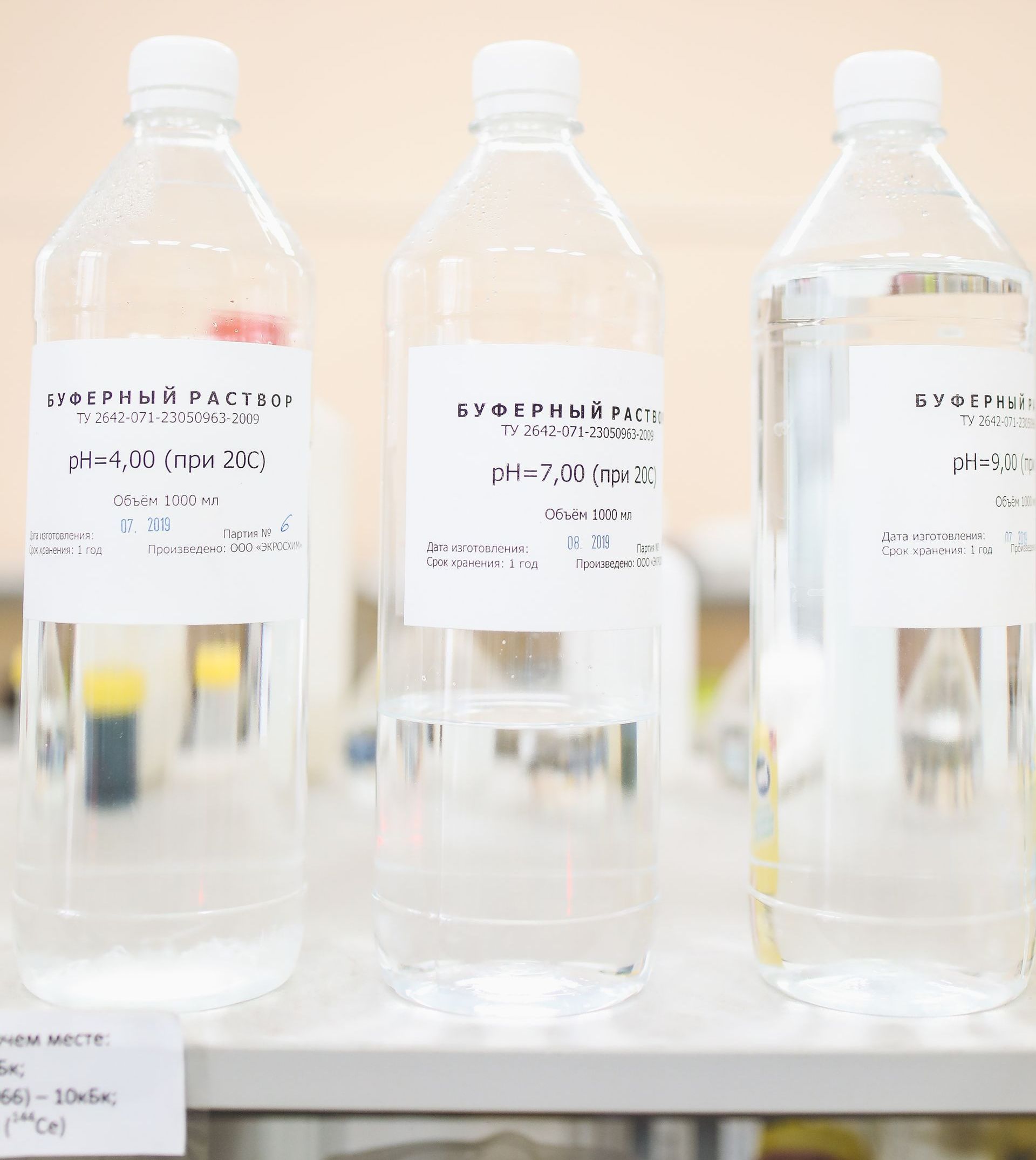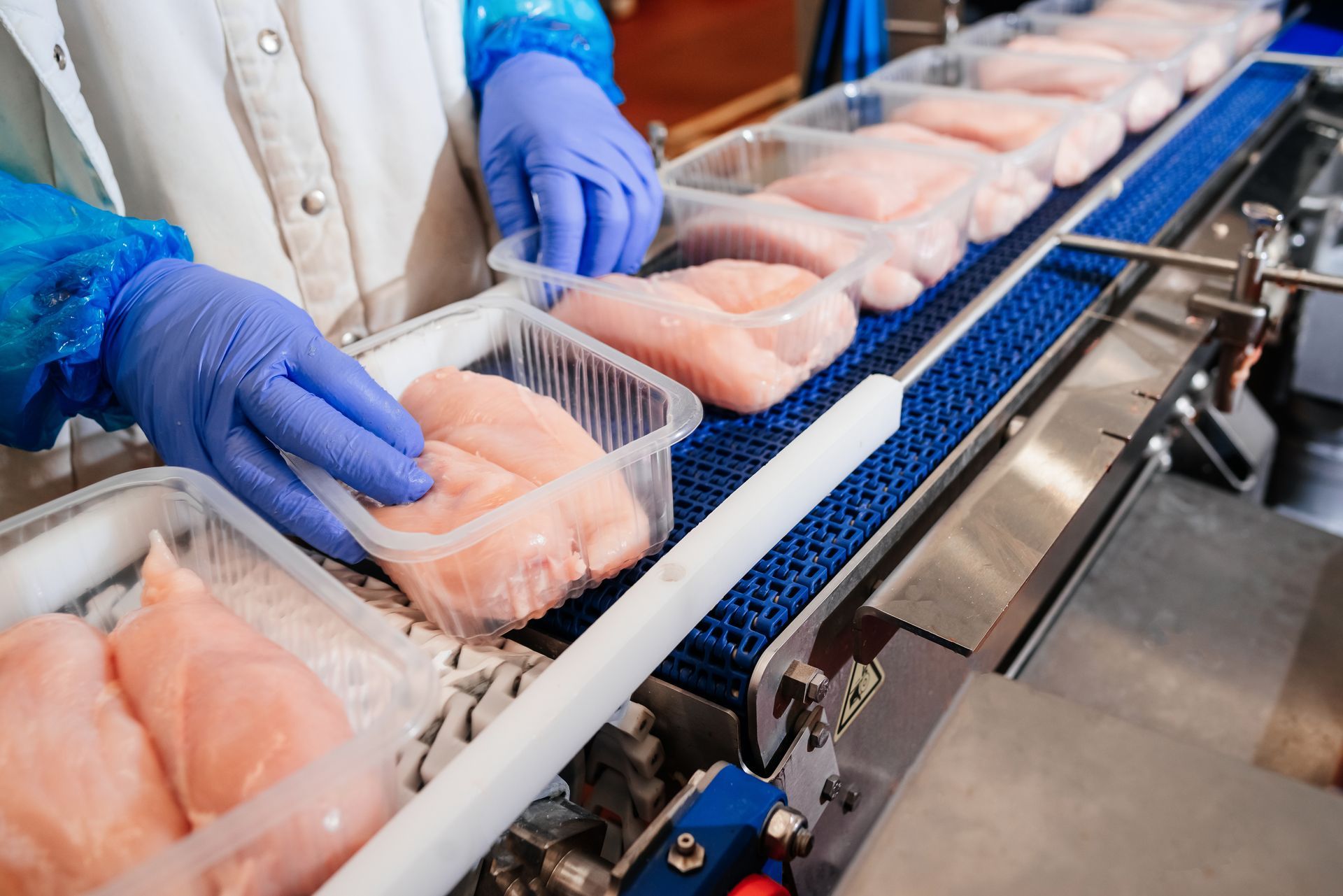1-877-HALAL-WW (+1-877-425-2599)
Acetic Acid: An Integral Component in Culinary and Halal Practices
Navigating the Halal Status of Acetic Acid for Informed Consumption and Use

The body content of your post goes here. To edit this text, click on it and delete this default text and start typing your own or paste your own from a different source.
Introduction
Acetic acid, a fundamental yet often overlooked component in both culinary and household realms, stands out for its versatility and significance. This article delves into the multifaceted world of acetic acid, exploring its history, production, and varied applications, particularly emphasizing its importance in halal dietary practices. Understanding acetic acid is essential for halal-conscious consumers, as it intersects with religious, nutritional, and practical aspects of daily life.
Alternative Ingredient Names
- Ethanoic Acid: The chemical nomenclature reflecting its molecular structure.
- Vinegar Acid: A common name denoting its primary presence in vinegar.
- Methanecarboxylic Acid: Another chemical name that indicates its place in the family of carboxylic acids.
Ingredient History, Manufacturing, and Sourcing
Acetic acid’s history is as rich as it is ancient, tracing back to the early practices of vinegar production. Historically, it was derived through the fermentation of fruits and grains, a process facilitated by natural bacteria in the environment. In modern times, its production has evolved to include synthetic methods, such as the catalytic oxidation of acetaldehyde or the reaction of methanol with carbon monoxide in the Monsanto or Cativa processes. These methods have allowed for the large-scale production of acetic acid, essential to meet global demand, especially from regions like North America and China, where industrial manufacturing is prevalent.

Usage and Function
In the kitchen, acetic acid is celebrated for imparting a sour and tangy flavor to a myriad of dishes. It's a key ingredient in vinegar, which is used in salad dressings, marinades, and as a condiment. Beyond culinary applications, acetic acid is a staple in household cleaning, valued for its effectiveness in removing mineral deposits and its natural antibacterial properties. Its utility extends to the industrial realm as well, where it's used in the production of plastics, pharmaceuticals, and textiles.
Role in Food Industry
In the food industry, acetic acid is indispensable. It serves as a critical acidity regulator, balancing the pH levels in beverages, canned goods, and confectioneries. Its preservative qualities help in extending the shelf life of perishable items by inhibiting bacterial growth. Moreover, acetic acid is a key component in the production of certain food additives and flavorings, underscoring its ubiquitous presence in food processing and manufacturing.
Halal Certification and Consumer Considerations
The halal status of acetic acid is contingent on its source and method of production. Naturally fermented acetic acid, commonly found in vinegar, is generally considered halal. However, when derived synthetically, particularly from sources involving alcohol, its halal status can be questionable. Halal certification bodies like Halal Watch World rigorously assess the production process of acetic acid, ensuring that it adheres to strict halal standards. For halal-conscious consumers, this certification is a testament to the purity and permissibility of acetic acid in their diet.

Interesting Facts for Halal-Conscious Consumers
- Health Benefits: Acetic acid, particularly in the form of apple cider vinegar, has been linked to various health benefits, including aiding digestion and helping regulate blood sugar levels.
- Cultural Significance: Vinegar, a primary source of acetic acid, is mentioned in Hadiths and is a staple in many Muslim cuisines for its flavor-enhancing properties.
- Environmental Impact: As a natural cleaning agent, acetic acid offers an eco-friendly alternative to harsh chemical cleaners, aligning with environmentally conscious practices.
Ensuring Halal Compliance through Certification
Halal certification, as conducted by bodies like
Halal Watch World, is a meticulous process that involves reviewing the sourcing, manufacturing, and handling of acetic acid. This process ensures that acetic acid products in the market are suitable for consumption, utilization, and transaction by halal-conscious consumers. Such certification reinforces trust and integrity in food choices, aligning them with Islamic dietary principles.









